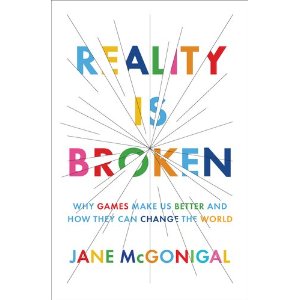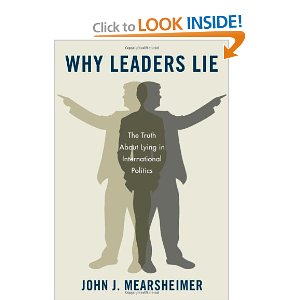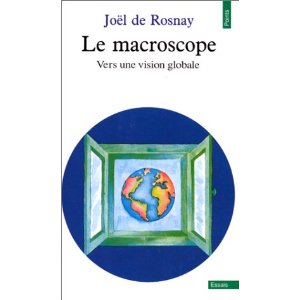
Oliver L. Reiser
Quick overview and appreciation by the chapter:

Oliver L. Reiser
Quick overview and appreciation by the chapter:

Jane McGonigal
![]() 6 Star for Concept–Ignores Past Pioneers–Energizes Us All
6 Star for Concept–Ignores Past Pioneers–Energizes Us All
February 28, 2011
I took the time to read all of the reviews to date, and was reminded again of the chasm between those who understand technology and its possibilities, and those who do not. Being among the latter, in part because I am a veteran of 30 years of watching the US Government waste trillions over that period on too much badly designed technology (government specifications, cost plus) for the wrong reasons and generally without a positive outcome [the Internet being an exception], I must respect–as the author respects with her obviously counter-ripostive editorial interview here at Amazon–both the importance of getting a grip on reality, and the importance of being more respectful of past pioneers, such Buckminster Fuller (RIP) and Medard Gabel (co-creator with Fuller of the analog World Game, creator of the architecture for the digital EarthGame(TM), and recent contributing editor to Designing a World That Works for All: How the Youth of the World are Creating Real-World Solutions for the UN Millenium Development Goals and Beyond (Volume 1), and Russell Ackoff [e.g. Redesigning Society (Stanford Business Books) as well as John N. Warfield [e.g Societal Systems: Planning, Policy and Complexity (Wiley Series on Systems Engineering & Analysis). And then there are the 55 authors in Collective Intelligence: Creating a Prosperous World at Peace, including Ms. Jan Watkins, Doug Englebart, Mark Tovey. In short, the WORST thing one can say about this book is that the author has had an immaculate conception to her great credit, but one that could have been vastly better grounded had she done her homework and a multi-disciplinary literature review, something her PhD committee evidently did not consider necessary.
Having said that, this book is without question a 6+, a ranking achieved by the top 10% of the non-fiction books and DVDs I have reviewed here at Amazon (1692 not counting this one). This is a world-changing book, and while the author has benefited from a fabulous personality and personal presence, and first rate representation and promotion, when read carefully and completely and placed in the context of all that is about us today, the originality, relevance, and imminent potential of this book and the ideas in this book cannot be denied. The author does not do what Medard Gabel has done–provide the architectural underpinings for the digital EarthGame(TM) and global to local holistic “dashboards” that integrate the ten high-level threats to humanity, the twelve core policies, the true costs of every good and service–she is still at the “one of” level rather than the meta level–but if she can reach out to Medard Gabel and others and actually harness not just the cognitive surplus of the crowds, but the contextual pioneering of those who have spent decades before her thinking and doing in this arena, then she will be the righteous public face of what I am starting to call “Open Everything: from Autonomous Internet to Global Panarchy.”

Jesse Eisenberg
![]() Six Star Special–The Essence of the Emerging Era
Six Star Special–The Essence of the Emerging Era
January 27, 2011
I was very glad to have a chance to see this movie on an airplane, and it was everything others had led me to believe. For myself, it captured the essence of what Peter Drucker calls the mono-maniac. I found the over-all blend of academic banality, personal eccentricities and genius, inter-personal egos and intentions, and the final financial settlements to be totally engrossing.
In many ways I consider Facebook to be the anti-thesis of Google; the first is earnest and personal despite some warts, and a self-made network–the second is secretive, mathematical, went corporate, and lost its soul in the process–as well as its direction.

John J. Mearsheimer
![]() Cornerstone, Not the Whole Building
Cornerstone, Not the Whole Building
January 2, 2011
By no stretch should this book be dismissed as a three. While I might normally have gone with a four, I am settling on five for balance and because the author not only covers an extraordinarily important topic in a sensible measured way, but his endnotes are another book all by themselves–I recommend all readers start there.
Where the author falls short is in lacking a strategic analytic construct for measuring the true costs of lying in blood, treasure, and spirit. He tends to ascribe pure motives to leaders (for example, not at all confronting the raw fact that Dick Cheney committed 23 documented impeachable acts (see my review of Vice: Dick Cheney and the Hijacking of the American Presidency for the itemization) and Dick Cheney also led the telling of 935 documented lies best covered by TruthDig but also in Weapons of Mass Deception: The Uses of Propaganda in Bush's War on Iraq.
The book disconnects grand strategy (global engagement) from domestic prosperity in a manner I find disconcerting, and while the author is most able in documenting the costs to a democracy of lies to the public, I do not see nor feel the deeper reality: lies destroy the Commonwealth. Lies allow a two-party tyranny to sell out to the Arabs (not just the Israelis), to Wall Street–lies permit the mortgage clearinghouse fraud, the derivatives fraud, and the Federal Reserve fraud on the one hand, while also fooling the public into a national security policy that is clinically insane, catastrophically costly, and ultimately a self-inflicted wound that could be fatal.
Continue reading “Review: Why Leaders Lie–The Truth About Lying in International Politics”

Franklin D. Kramer (Editor), Stuart H. Starr (Editor), Larry Wentz (Editor)
![]() Read Macgregor & Steele for the Other Half
Read Macgregor & Steele for the Other Half
January 1, 2011
I like the book and I like the authors and I do NOT like the fact that neither decision-support nor intelligence (decision-support) nor M4IS2* are in this book. Retired Reader's review–at five stars–is the review I would have written were I to read the book rather than just appreciate it via Look Inside the Book, and he and I have discussed the intellectual and leadership vacuum we all have in cyberspace where most simply have no idea what they are doing.
* Multinational, Multiagency, Multidisciplinary, Multidomain Information-Sharing and Sense-Making (M4IS2)
I must defer to Retired Reader and Bob Gourley on the good of this book, and hence five stars from em as well. However, and with proper regard for the the vastly experienced and well-intentioned authors, it troubles me that they do not include core concepts and context such as were developed by Robert Garigue, who died at the age of 55 before being able to produce his master work. His Preface to my third book, Information Operations: All Information, All Languages, All the Time and a couple of his briefings that I have featured at Phi Beta Iota the Public Intelligence Blog, are all that we have to remember his towering genius. As with all my books, all free online.
Here is Robert Garigue's bottom line: cyber-power–and cyber-security and what some would call today cyber-command (actually an oxymoron) are about TRUTH & TRUST. All this stuff about protecting legacy systems that are 90% rubbish or interdicting and interfering with the 10% of our enemies that have sophisticated system, is out of touch with reality. The Chinese have whipped our butts on both stealth and riding electrical circuits into NSA's computers and they did it because we pretend that spending money on contractor vapor-ware (SAIC's Trailblazer comes to mind) is somehow equivalent to being competent at something useful.
This brings me to the bottom line: cyber-power does not exist in a vacuum. It is, like a weapon, an extention of the humans that it serves or empowers. Right now US cyber-power is–to the extent it is even relevant or effective–being managed by gerbils (Madeline Albright's term, not mine) for utterly unsound and intellectually as well as morally bankrupt ends–and it is not doing a single thing to help infantry squads see over the next hill, survive improvised explosive devices that still cannot be detected (on behalf of the Marine Corps, my #1 requirement for MASINT in 1988 after seeing the wood-encased IED's in El Salvador in 1979-1980) and on and on.

Worth reading for Nathaniel Fick's introduction alone. And then some….
Dick Couch
Dick Couch is a graduate of the U.S. Naval Academy and served with the Navy Underwater Demolition and SEAL Teams in Vietnam. He is the author of twelve other books, including The Warrior Elite, Chosen Soldier and SEAL Team One. A resident of Ketchum, ID he is a frequent guest on radio and TV talk shows. He has lectured the Air Force Academy, the Naval Special Warfare Center, the JFK Special Forces Center and School, the FBI Academy, the Naval Postgraduate School, The Joint Special Operations University and The Academy Leadership Forum. Recently he served as adjunct professor of Ethics at the U.S. Naval Academy.
From National Defense University Review:
The message of this slim volume is simple: the two strands of a unit's technical competence and its moral compass are equally critical, with the moral health reflected in the actions and words of our junior leaders possibly more important to combat effectiveness— especially in the insurgent environment, where the war is waged and won at the small unit level and the target is not the insurgent, but the trust and support of the local population.
5.0 out of 5 stars A fantastic book to help set a warrior's moral compass
April 20, 2010
ByJ. Rudy “Major, USAF” (Fairfax, VA) – See all my reviews
“A Tactical Ethic: Moral Conduct in the Insurgent Battlespace”, by Dick Couch, is a handbook reminding the men and women who put boots on the ground that actions that seem logical to you, can have a far different effect than anything anticipated. Having served as a Navy SEAL during the Vietnam War and professor of “Moral Reasoning for Military Leaders” at the United States Naval Academy, Couch offers his expert insights to the current and next generation of warriors. Americans need to look no further than the embarrasment caused by bored, misguided soldiers at Abu Graib to understand why a book such as this is needed.
Couch begins the book with a statement of the moral problems currently facing our military. He writes, “If the Vietnam War was the first war in which TV cameras roamed the battlespace, then Iraq and Afghanistan are the first extended stuggles in which digital imaging, text messaging, and cell-phone cameras are commonplace. Today there is far more opportunity for a bad act to be reported.” Couch proposes that the speed and ease of sharing that information will end up losing the fight for the “human terrain” — the support of the local populace, for which the insurgents are also competing.
With a basic understanding of the problem, Couch investigates how America takes the current generation of youth and transforms the insecure teenageers into bold, confident men that serve on the front lines. Feminists may feel slighted that the book does not focus on women, but Couch offers very compeling arguments as to why women are not are not central to the issues addressed earlier. He then looks at ethics training integrated with the basic training of the Army and Marine Corps, neglecting the Air Force because it does not engage in the same type of small-unit combat actions that routinely interact with the local populace. He rounds out his analysis of the warrior ethic training with by examining the (lack of) integration of ethics training with the advanced training of the various Special Forces.
Couch concludes the book by proposing “Battlefield Rules of Engagement (ROE)”, or the keys to moral success. He perfectly summarizes the the common vision of all warriors “All share a universal goal: to prepare appropriately for the fight, conduct themselves in battle with courage and virtue, win the fight, and return with honor.” In this age of pocketcards, I'm sure that the 10 ROEs he proposes will make their way onto the next set issued to the men and women going into harm's way. They are succinct, understandable, and right on the mark. I highly recommend this book for NCOs and company grade officers — your leadership will set the moral compass for the men and women who serve under you. This is a great book to help you chart the course.

Phi Beta Iota: Advanced Information Operations (IO) must focus heavily on the spectrum of morality, both within blue forces and red forces, and all along the other tribes of intelligence. Will Durant is not alone, when he says in Lessons of History, that morality is a strategic asset of priceless value. The arrogant lose their grip of reality–and morality–before they lose their power.

The Symbiotic Man: A New Understanding of the Organization of Life and a Vision of the Future
Joel De Rosnay (Author)
In this Future Shock for the new millennium, de Rosnay, director for strategy for the Science and Industry Complex in Paris, predicts the coming of what he calls the “Cybiont”: a global “macroorganism” that encompasses humanity, the environment and technology. The culmination of de Rosnay's earlier work (The Macroscope; The Paths of Life; The Planetary Brain), this book became a bestseller upon its initial publication in France in 1995. The author regards the computer as a “macroscope,” an instrument that lets humans view larger trends and that will eventually take on a life of its own; he quotes Stephen Hawking's view that computer viruses and other electronic “intelligence” may actually be developing into forms of life. For mankind to survive, we must establish close symbiotic relationships with our technology and its emerging self-generated intelligence and with nature, he says. Unfortunately, de Rosnay fails to consider very deeply what constitutes consciousness, a subject many other scientists have investigated, or artificial intelligence. He also seems to overestimate humans' willingness to sacrifice their private interests to achieve long-term, communal goals. De Rosnay does, however, present many provocative ideas like “fractal time” and “time bubbles,” and he discusses interesting and thus far fairly esoteric advances in technological sensory perception and even brain-computer connections. This book doesn't come together as a convincing vision of the future, but it certainly provides readers with many challenging ideas to mull over, and it may encourage them to consider their individual roles in the greater scheme of things.

The Macroscope; The Paths of Life; The Planetary Brain
in US: The macroscope: A new world scientific system
See Also:
Worth a Look: Book Reviews on Bio-Economics
Worth a Look: Book Reviews on Civilization-Building
Worth a Look: Book Reviews on Collective Intelligence
Worth a Look: Book Reviews on Common Wealth
Worth a Look: Book Reviews on Conscious, Evolutionary, Integral Activism & Goodness
Worth a Look: Book Reviews on Dialog for Truth & Reconciliation
Worth a Look: Book Reviews on Diversity of Voices & Values (Other than USA)
Worth a Look: Book Reviews on Diversity of Voices & Values (USA)
Worth a Look: Books Reviews on Education for Freedom & Innovation
Worth a Look: Book Reviews on Evolutionary Dynamics
Worth a Look: Book Reviews on Innovation
Worth a Look: Book Reviews on Leadership for Epoch B
Worth a Look: Book Reviews on Self-Determination & Secession